Be the first to review this product
PRODUCT DETAILS
Winter Red Organic Kale Seeds are CERTIFIED ORGANIC! A Red Russian type kale developed for good uniform color and old hardiness. Winter Red is a tender salad kale that works well in a crop scheme with others for a continuous, year-round harvest. The edible flower buds (known as napini) from this cultivar arrive early, and are dark red, slim, and tasty. Winter Red makes excellent microgreens, baby salad greens, and mature leafy kale. It was bred here in the Pacific Northwest and is highly productive in coastal organic vegetable gardens.
- Matures in 50-80 days. (Open-pollinated seeds)
- Tender salad kale
- Developed for color and hardiness
- Edible flower buds
- Open-pollinated seeds
- Matures in 50-80 days
All About Winter Red Organic
Latin
Brassica oleracea var. acephala
Family: Brassicaceae
Difficulty
Easy
Season & Zone
Season: Cool season
Exposure: Full sun
Zone: Winter hardy to Zone 6.
Timing
Direct sow in early spring to mid-summer for summer to winter harvests. Or start indoors 4-6 weeks before the last frost, and transplant out as soon as the soil warms up. Optimal soil temperature: 10-30°C (50-85°F). Seeds should germinate in 7-10 days.
Starting
Sow 3-4 seeds 5mm (¼”) deep in each spot you where a plant is to grow. Thin to the strongest plant. Space 45-60cm (18-24″) apart in rows 75-90cm (30-36″) apart.
Growing
Ideal pH: 6.0-6.8. Add lime to the bed 3 weeks prior to sowing. Kale likes well-drained, fertile soil high in organic matter. This plant prefers plentiful, consistent moisture. Drought is tolerable, but quality and flavor of leaves can suffer. Mix ¼ cup of complete organic fertilizer into the soil beneath each transplant, or use 1 cup beneath every 3m (10′) of seed furrow.
Harvest
Kale and collards can both be grown as a cut and come again crop for salad mixes by direct-seeding and cutting baby leaves. They will re-grow if you pick leaves from the bottom up, as you need them. Continue harvesting lower leaves as they mature—plants will keep producing all season. Kale can overwinter in many areas. In fact, the leaves get sweeter after frost, though growth will slow. In spring, the surviving plants start to flower, so eat the delicious flowering steps and buds.
Diseases & Pests
Protect from cabbage moths and other insect pests with floating row cover. Prevent disease with a strict 4-year crop rotation, avoiding planting Brassicas in the same spot more than once every four years.
Companion Planting
All Brassicas benefit from chamomile, dill, mint, rosemary, and sage. Avoid planting near eggplants, peppers, potatoes, or tomatoes, as the acidic soil these plants thrive in can cause problems for Brassicas.
| Manufacturer's Model Number | KL432AF |
|---|---|
| UPC | 687704071064 |
| Brand | West Coast Seeds |
| Family | Kale |
| Days to Maturity | 50-80 |
| Certified Organic | Yes |
| Heirloom | No |
| Open Pollinated | Yes |
| Hybrid | No |
| Shipping Type | Seeds |
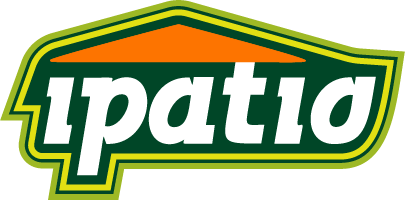
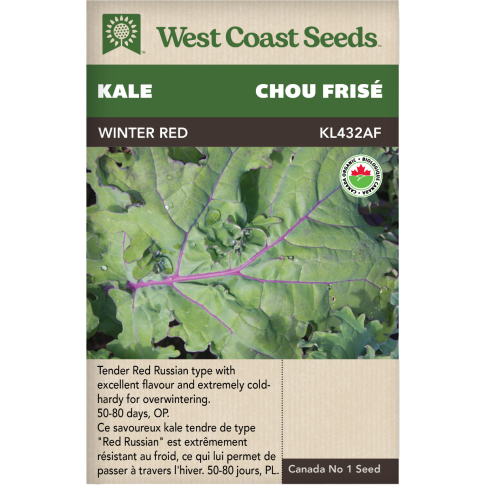


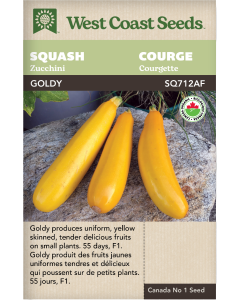
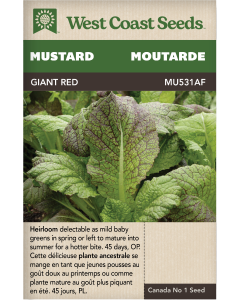
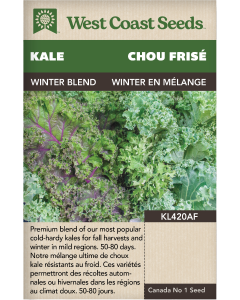
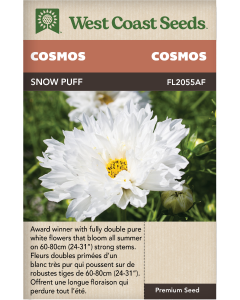
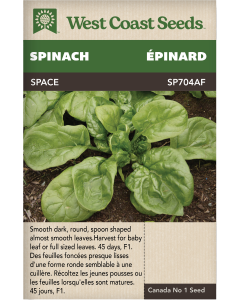
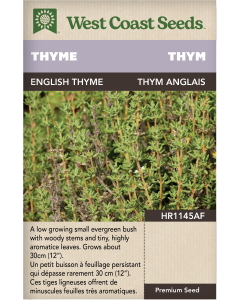
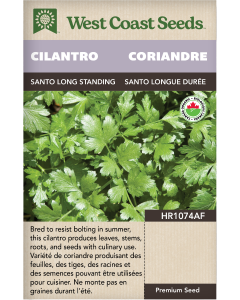
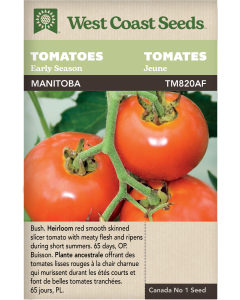
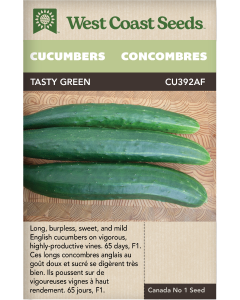
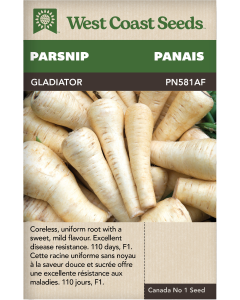
Login and Registration Form